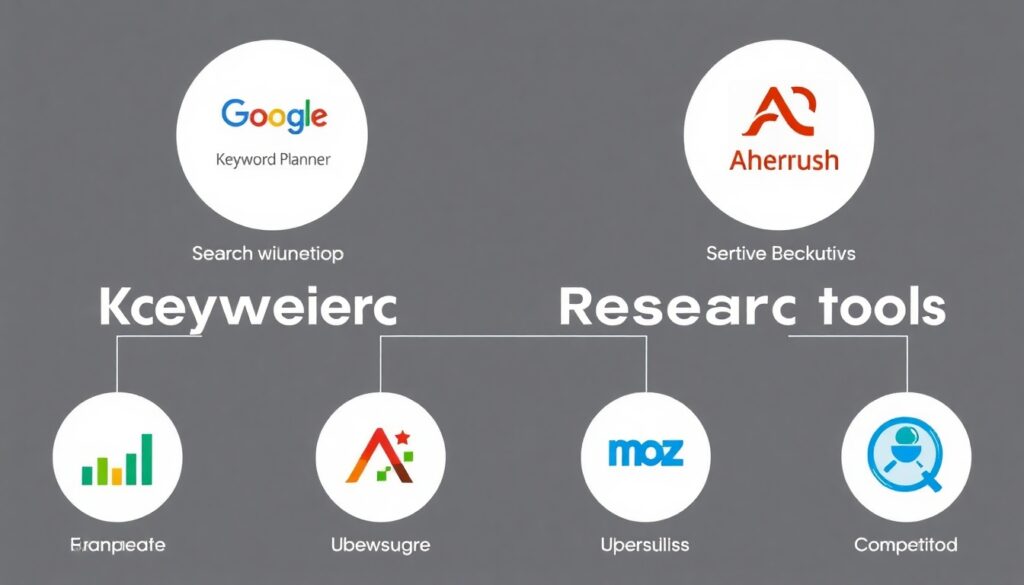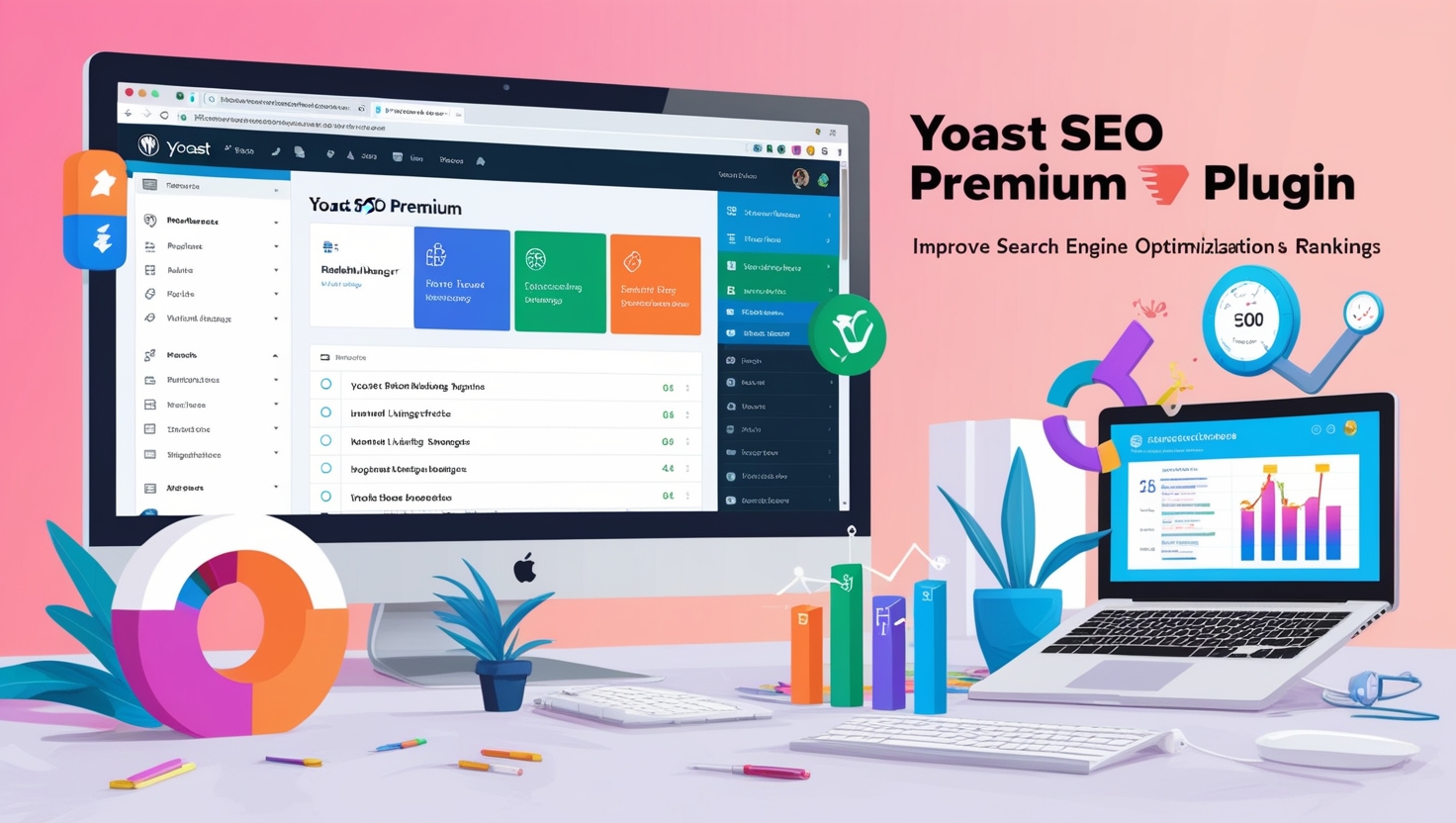Keyword research is the foundation of any successful SEO strategy. Leveraging the right tools is essential to stay ahead of the competition and attract valuable traffic to your website. This guide explores the best keyword research tools, walking you through their key features and benefits and showing you how to use Best 5 Keyword Research Tools: Step-by-Step Guide.
1. Google Keyword Planner: The Free Powerhouse

Google Keyword Planner is a go-to tool for digital marketers and SEOs because it offers actionable insights directly from Google’s own data.
Key Features:
- Search volume data for keywords
- Competitiveness and CPC (Cost Per Click) metrics
- Keyword grouping and filtering options
- Integration with Google Ads
Step-by-Step Guide:
- Access Google Keyword Planner: Log in to your Google Ads account and navigate to the “Tools & Settings” menu.
- Select Your Objective: Choose between “Discover new keywords” or “Get search volume and forecasts.”
- Input Keywords or Website URL: Enter a seed keyword or paste your website URL to generate suggestions.
- Analyze Results: Use filters to refine keyword suggestions based on location, language, and more.
- Export Data: Download the list of keywords for detailed analysis.
Google Keyword Planner is ideal for those on a budget and offers a solid starting point for SEO and paid advertising campaigns.
2. SEMrush: Comprehensive SEO Suite

SEMrush is a premium tool favored by marketers for its robust keyword research capabilities combined with competitor analysis.
Key Features:
- Keyword Difficulty Score
- Organic and paid search data
- Competitive keyword gap analysis
- Long-tail keyword suggestions
Step-by-Step Guide:
- Create a Project in SEMrush: Sign up for SEMrush and set up a project for your website.
- Use the Keyword Overview Tool: Input your target keyword and get metrics like volume, difficulty, and SERP features.
- Explore the Keyword Magic Tool: Discover long-tail variations and related keywords for deeper content targeting.
- Perform Competitor Analysis: Use the Domain Overview tool to see which keywords your competitors are ranking for.
- Track Performance: Add important keywords to the tracking tool and monitor their SERP position over time.
SEMrush is best for experienced marketers who need detailed data and advanced features for competitive keyword analysis and monitoring.
3. Ahrefs Keywords Explorer: Deep Data Insights
Ahrefs Keywords Explorer offers unparalleled accuracy and a massive database of keyword data, making it an indispensable tool for marketers.
Key Features:
- Search volume and keyword difficulty
- Click-through rate (CTR) metrics
- Keyword ideas based on parent topics
- SERP analysis with backlink data
Step-by-Step Guide:
- Log in to Ahrefs: Access your account and go to the Keywords Explorer tool.
- Enter a Seed Keyword: Start with a broad keyword to generate thousands of ideas.
- Filter Results: Apply filters for keyword difficulty, search volume, and traffic potential.
- Analyze SERP Features: Dive into the top-ranking pages for the keyword to assess competition.
- Refine Your Strategy: Use Ahrefs’ advanced features like the Content Gap tool to find untapped keyword opportunities.
Ahrefs is known for its high-quality data and depth of analysis, making it ideal for SEO professionals looking to gain insights into keyword competitiveness and opportunities.
4. Ubersuggest: User-Friendly and Budget-Friendly
Ubersuggest by Neil Patel is an excellent tool for beginners and small businesses looking for affordable yet powerful keyword research.
Key Features:
- Free daily searches for users
- Domain and keyword analysis
- Keyword trend data
- Content ideas for better ranking
Step-by-Step Guide:
- Sign Up for Ubersuggest: Access the platform and start with the free version or upgrade for additional features.
- Enter Your Keyword: Input your seed keyword and analyze search volume, competition, and CPC data.
- Discover Related Keywords: View long-tail suggestions and trending queries to expand your content strategy.
- Check Domain Insights: Analyze your domain or competitor domains to find high-performing keywords.
- Monitor Progress: Track keyword rankings over time and refine your strategy as needed.
Ubersuggest is ideal for beginners and small businesses that need a simple, affordable keyword research tool with useful features for on-page SEO and content development.
5. Moz Keyword Explorer: Simplified and Strategic

Moz Keyword Explorer is a smart tool that offers user-friendly features for actionable keyword insights, making it ideal for SEO newcomers and experts alike.
Key Features:
- Priority score combining volume, CTR, and difficulty
- Organic CTR metrics
- SERP analysis
- Keyword suggestions based on relevance
Step-by-Step Guide:
- Sign Up for Moz Pro: Access the Keyword Explorer tool as part of the Moz Pro subscription.
- Search for Keywords: Enter a seed keyword or topic to explore opportunities.
- Analyze Metrics: Look at the priority score to determine which keywords are worth targeting.
- Refine Your Search: Use filters to exclude branded terms or find high-potential long-tail phrases.
- Export Your List: Download keyword data for use in your content and SEO strategy.
Moz Keyword Explorer offers a blend of simplicity and strategic depth, making it a great tool for both beginners and more experienced users focused on targeting high-quality, relevant keywords.
Choosing the Right Tool for Your Needs (Best 5 Keyword Research Tools: Step-by-Step Guide)
Each of these tools offers unique advantages. If you’re just starting out, Google Keyword Planner or Ubersuggest may be the best fit due to their accessibility. Advanced users may prefer SEMrush, Ahrefs, or Moz Keyword Explorer for their detailed metrics and competitive analysis features.
The key to successful keyword research lies in consistently using these tools to refine your SEO strategy, monitor performance, and adapt to changing trends in search behavior. Regardless of which tool you choose, remember that SEO success requires ongoing optimization and staying updated with evolving keyword trends.
This completes the article with a thorough overview of each keyword research tool and practical steps for using them effectively.







